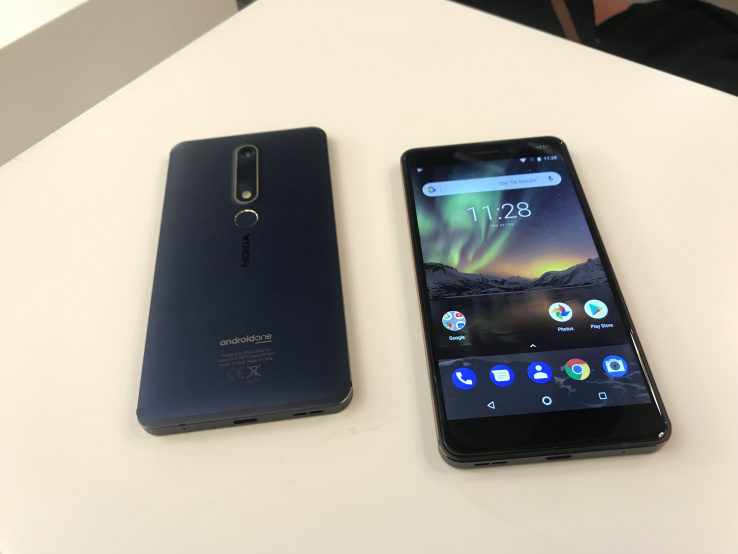
Alongside HMD’s big bet on reviving the legendary Nokia brand and business through a licensing deal and a new wave of handsets that it is unveiling today at MWC in Barcelona, the company also announced another interesting piece of news: it has entered a new partnership with Google, where HMD/Nokia is now a leading participant in Google’s Android One — a program where Google has aimed for less fragmentation among Android smartphones by specifying hardware, the Google UI and a commitment to regular security updates.
The Android One deal will see a slate of Nokia’s of Android-based devices — the Nokia 8 Sirocco, Nokia 7 Plus and the Nokia 6, all running Android Oreo — come into the program in one go, a first for any Android OEM, and it signals an interesting shift.
“We’ve created a unique partnership with Google and it makes sense that we should strengthen that partnership today,” said Juho Sarvikas, CPO of HMD Global, in his presentation today.
HTC, an existing leader of the Android One pack, has been struggling in its own handset business in the wake of selling a part of its business to Google. As of today, Xiaomi’s Mi A1 is the handset displayed on the Android One homepage, but from what Xiaomi has told us, the company has no plans to launch any new handsets this week at MWC.
With none of the other prominent handset makers like Samsung or LG announcing Android One devices — other Android One launches around MWC consist of two handsets from Spanish company BQ and another smaller existing Android One partner announcing a new device later this week — this leaves Nokia effectively “leading the charge” on Android One at the moment, as one source close to Google described it to TechCrunch, and HMD itself also spelled out — at a pre-briefing ahead of MWC at Google’s offices in London.
“Nokia is becoming the lead partner for Android One,” Pekka Rantala, EVP and CMO of HMD Global said in an interview. “We didn’t have the capabilities of going for it [before but now] we are going portfolio wide.”
“We are excited to have Nokia as a partner,” said Andrei Popescu, and engineering director at Google, at the briefing. “We have done a lot of work to optimise for this experience, and we think this is going to be really good.”
There is still a question mark, of course, over whether HMD will manage to turn the smartphone tides, with or without the Android One designation.
While smartphone purchasing has been tailing off for the last several years, a small handful of brands — led by Apple and Samsung — have taken the lead in terms of sales globally, and the once-mighty Nokia has well and truly dropped out of that race.
Nokia got its start as one of the trailblazers in mobile, and then smartphones, with its own Symbian OS. Once the leader of the global smartphone market, the entry of Google’s Android and the wave of OEMs that this unleased, alongside Apple’s iPhone, quickly eroded that position. Nokia eventually shifted all of its smartphones to Microsoft’s Windows Phone, before abandoning all that and now turning to Android in a much smaller and more modest turn.
“We are so much more agile than ever before,” Rantala said, positively. “That is the top of mind. Working in partnership with Google, there are so many more things that are possible.”
HMD confirmed to TechCrunch that Google is not investing in the company has declined to disclose how it is capitalised although the company is closely linked with Foxconn, which manufacturers its Nokia devices.


